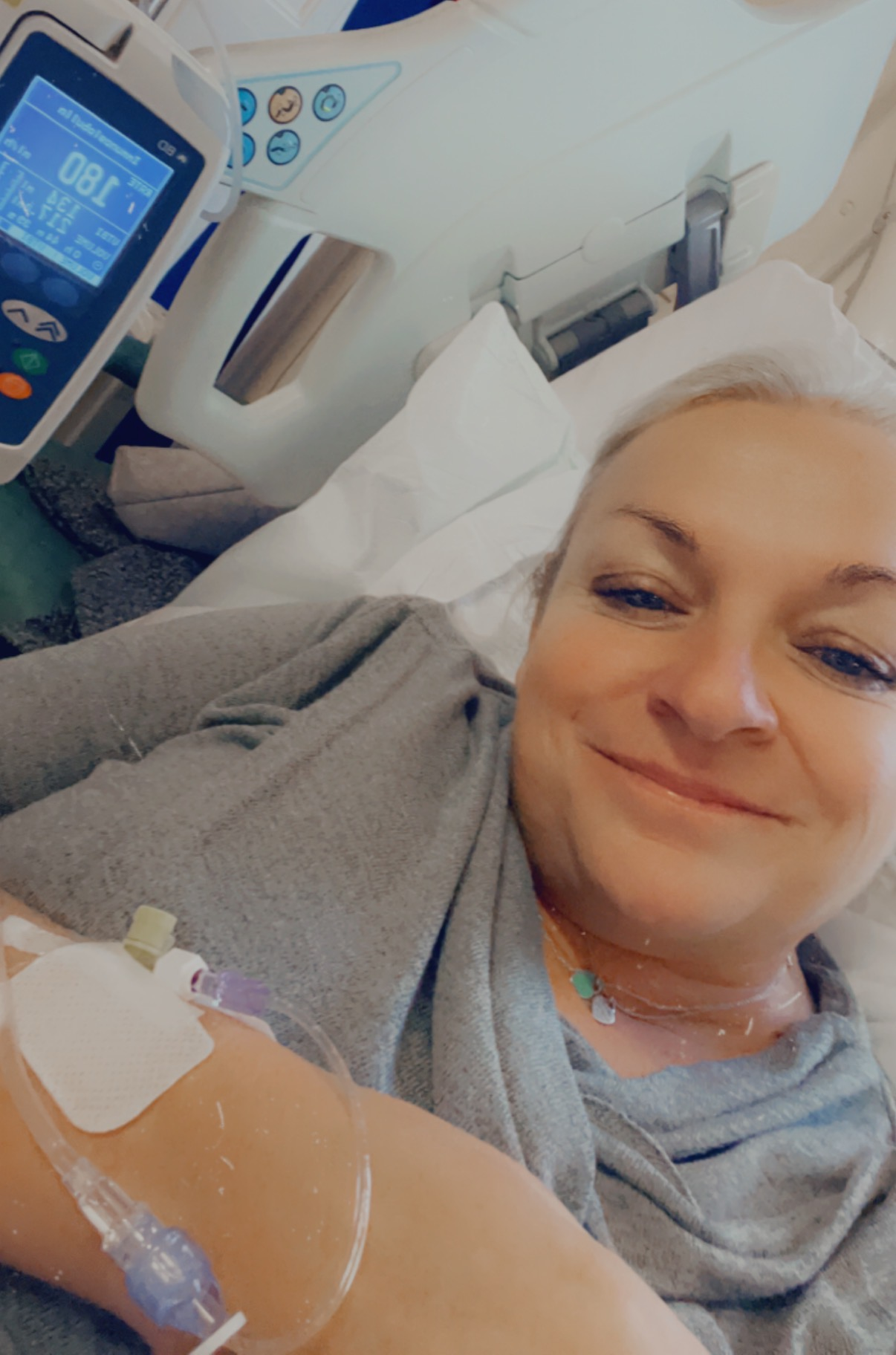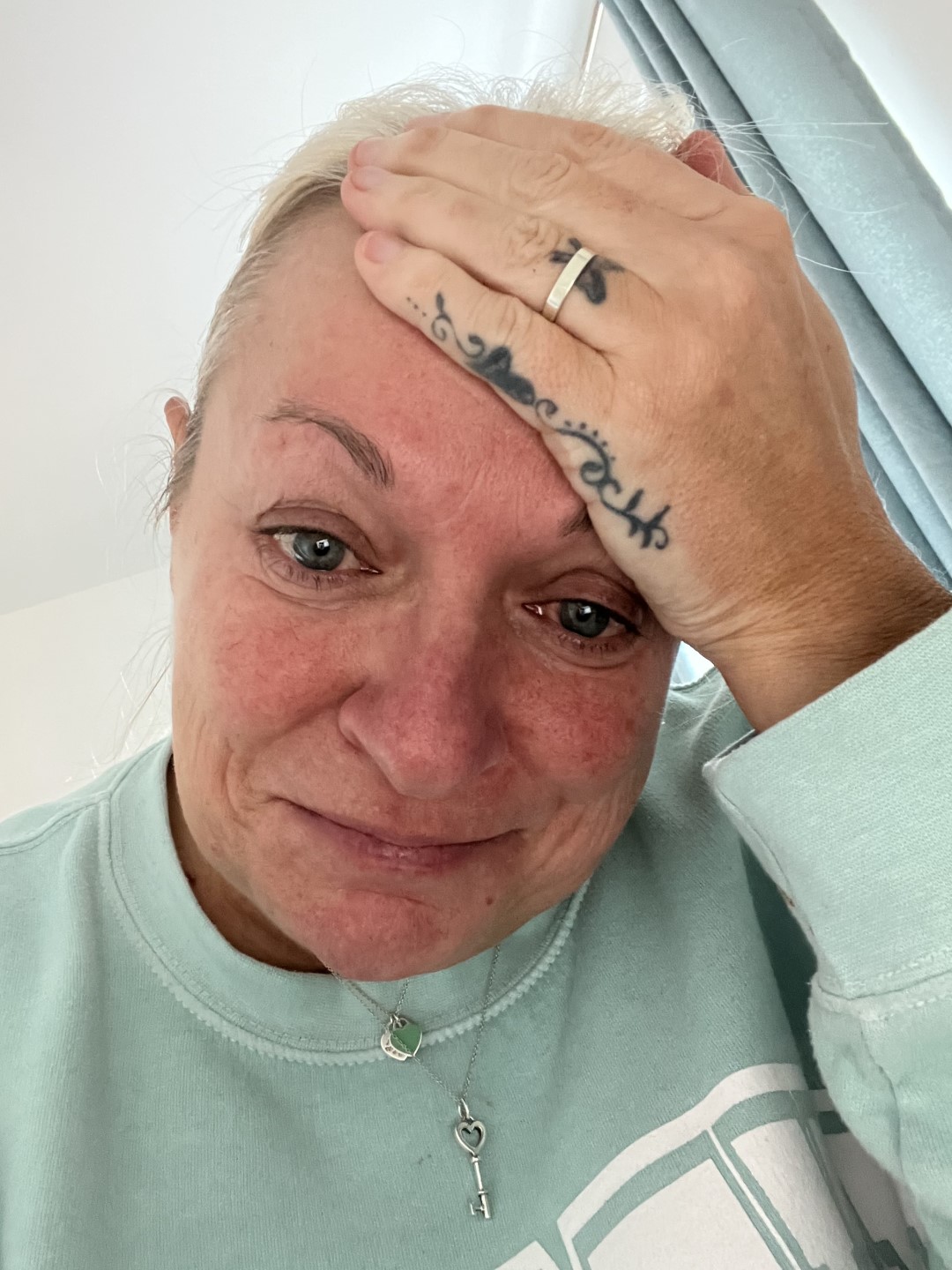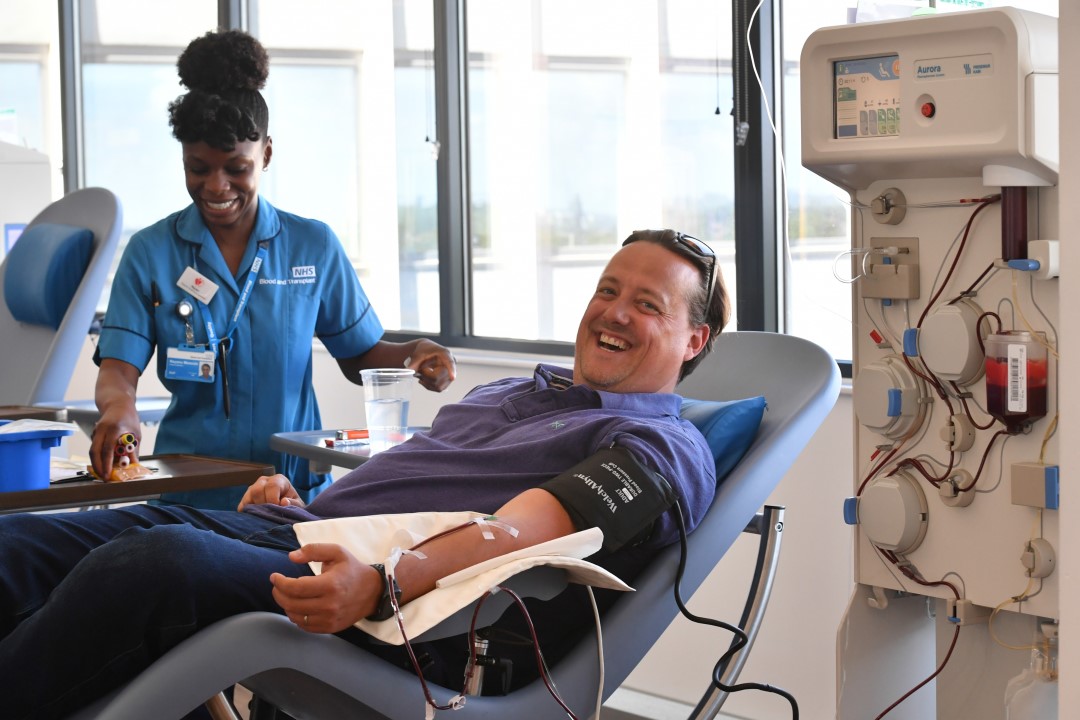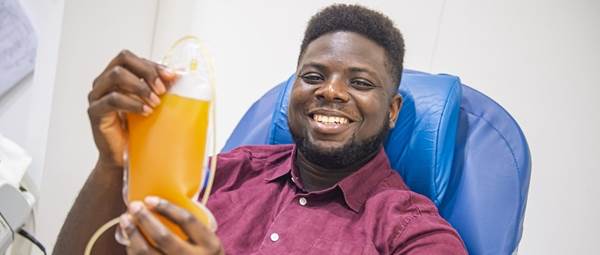Mum with incurable ‘one in a million’ disease supports need for plasma donors
A mum with an incurable, ‘one in a million’ disease is backing an appeal for people to register as plasma donors to mark tomorrow’s Rare Disease Day [Rare Disease Day is Tuesday, February 28].
Karen Long has Stiff Person Syndrome – the neurons that control her muscles are misfiring, causing her body to tense and spasm.
Celine Dion was recently diagnosed with the syndrome.
People with the condition can become immobile, require intensive care, and die.
It affects roughly twice as many females as males. (1)
The exact mechanism is unknown but it’s understood to be an autoimmune disease where the patient’s antibodies - part of the immune system – cause the neurons that control the muscles to misfire.
 Karen, 52, a make-up artist from Romsey, is treated with infusions of immunoglobulin, a medicine made from the antibodies in donated blood plasma.
Karen, 52, a make-up artist from Romsey, is treated with infusions of immunoglobulin, a medicine made from the antibodies in donated blood plasma.
The donor antibodies help her immune system to self-regulate.
Her symptoms have reduced and the disease progression has slowed. Immunoglobulin is used to treat more than 50 diseases, many of them rare.
Karen gets immunoglobulin infusions every four weeks at the Royal Hampshire County Hospital in Winchester.
Karen said: “I started having symptoms around 2011 but it was put down to stress and anxiety.
“I started to struggle to walk and began losing my balance. I was a teaching assistant and I could not walk across the playground.
“It had got to the point where I was worried to go out and it was becoming reclusive.”
 In 2016, Karen had a ‘horrific, massive episode’.
In 2016, Karen had a ‘horrific, massive episode’.
“My whole body went into spasm. I couldn’t walk. I woke up one Sunday morning and went to the bathroom and my legs were shaking."
“I thought I had a trapped nerve but it got worse and then I had no control over the lower half of my own body whatsoever.”
Stiff Person Syndrome is very rare. Estimates of the prevalence in medical literature vary but they include one in a million people (1). Last year, just under 100 people in England received immunoglobulin for Stiff Person Syndrome (2).
“I could have won the lottery with those odds but I got this instead,” said Karen.
“I actually burst into tears when I was diagnosed. I have been told for so long this was in my mind, just to be told there was something wrong was such a relief."
“It was a bit heartbreaking to know it can’t be cured and I would be on maintenance for life. But I was relieved to find out what was wrong.”
Immunoglobulin gives me a chance. It’s never going to be a normal life but it gives me a chance at life.
Her immunoglobulin treatment began in April 2016.
She said: “It was like a lightbulb moment. It made a massive difference."
“I was more mobile, I wasn’t as stiff, I wasn’t having spasms, just being able to do normal things like go out and meet friends.”
She added: “It’s getting harder now because the disease is progressive. They’ve upped my dose because I was starting to get housebound again and I’ve had several bad falls but upping the dosage has really helped. I still get muscle spasms and stiffness and I walk with a stick. My muscles tighten when I move position and just putting on socks and shoes is a massive effort."
“Immunoglobulin gives me a chance. It’s never going to be a normal life but it gives me a chance at life."
“The future is really unknown. Some people with SPS are housebound or even bedbound. It can take 20 years off your life. It can be critical if you have a spasm in the muscles around an organ. Every day is a different day. The only time my muscles relax is when I am lying in bed. It’s the one chance for your body to have a break.”
She added: “I am very thankful to the people who donate. Immunoglobulin gives people a little bit of hope. It gives me a chance to see my son finish university, maybe get married, maybe even have a grandchild.”
 NHS Blood and Transplant has plasma donation centres in Birmingham, Reading and Twickenham. People can also help by donating blood at any normal blood donation session anywhere in England, as the plasma is recovered from the blood.
NHS Blood and Transplant has plasma donation centres in Birmingham, Reading and Twickenham. People can also help by donating blood at any normal blood donation session anywhere in England, as the plasma is recovered from the blood.
Plasma is part of your blood. It’s a yellow liquid which carries everything around the body.
During plasma donation, a machine gradually separates out up to 700mls of plasma from blood. Donation takes about 35 minutes and the whole visit – including questionnaires and snacks - takes around one hour 15 minutes.
England relied on solely on imported immunoglobulin for more than 20 years as a precaution against vCJD but the Medicines and Healthcare products Regulatory Agency (MHRA) said in 2021 that plasma from UK donors can again be used for immunoglobulin.
Donations taken in England are being frozen and stored and will start reaching patients once a fractionator is appointed and a full supply chain is in place.
Donations will bolster future availability of the medicine in England, giving patients more protection from international shocks and shortages.
Need for plasma donors
Our research shows that to help treat these rare diseases we need more than:
- 1,000 new plasma donors in the Thames Valley
- 1,000 new plasma donors in the West Midlands
- 2,000 new plasma donors in London
Press release notes
- The Orphanet study summary states approximately 2/3 patients are female
- The National Immunoglobulin Database Data Update report reports on immunoglobulin usage across England and Northern Ireland

